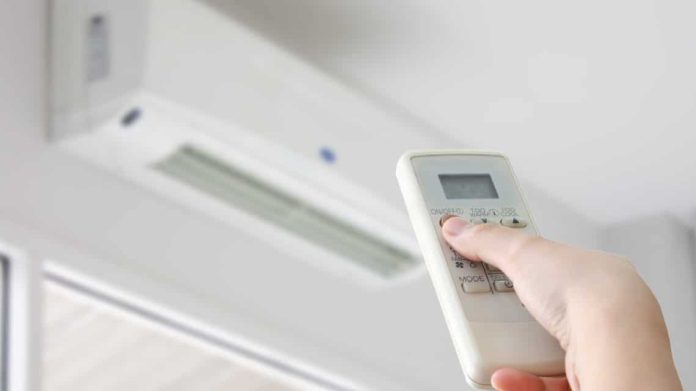The summer season brings with it a lot of fun and exciting activities, but the heat can be quite challenging to deal with. While it’s tempting to rely heavily on air conditioning to stay cool, the high cost of running an AC unit can put a strain on your wallet. Fortunately, there are several strategies you can employ to save money on air conditioning while still enjoying a comfortable indoor environment.
1. Invest in Smart Temperature Control:
Smart devices such as smart AC controllers or thermostats offer advanced features that can help you optimize energy usage and save money. These devices allow you to automate temperature adjustments, set schedules, and even use location-based controls. By using smart technology, you can ensure that your AC runs only when necessary and at the most energy-efficient settings, resulting in significant cost savings.
2. Inspect and Insulate Your Windows:
Windows are one of the primary culprits when it comes to heat transfer. Check your windows for any air leaks and seal them with weatherstripping or caulking. This will prevent cool air from escaping and hot air from entering your home, reducing the workload on your air conditioner. Additionally, consider upgrading to energy-efficient windows that are designed to minimize heat transfer.
3. Utilize Window Films:
Window films are an affordable and effective way to block out heat and reduce glare. There are two main types of window films: tinted films and reflective films. Tinted films can change the color of sunlight entering the room, while reflective films have a mirror-like finish and are excellent for heat and glare reduction. By installing window films, you can limit the amount of sunlight and heat that enters your home, leading to reduced cooling needs and lower energy bills.
4. Install Solar Screens:
Solar screens are specially designed mesh screens that can be installed over windows to block out heat from the sun. These screens can significantly reduce heat gain, helping to keep your home cooler and reducing the workload on your air conditioner. Solar screens are available in various densities, so be sure to choose one that strikes the right balance between heat reduction and maintaining adequate natural light.
5. Switch to Energy-Efficient Lighting:
Traditional incandescent and halogen bulbs not only consume more electricity but also emit a significant amount of heat. By replacing them with energy-efficient LED bulbs, you can save on both energy costs and cooling expenses. LED bulbs are more energy-efficient, emit less heat, and have a longer lifespan, making them a cost-effective choice for illuminating your home.
6. Utilize Ceiling Fans:
Ceiling fans are an excellent supplement to air conditioning as they circulate the air, creating a wind-chill effect that makes you feel cooler. By using ceiling fans in conjunction with your AC, you can raise the thermostat temperature by a few degrees without sacrificing comfort. This can lead to substantial energy savings over time. Consider using smart ceiling fans that can be programmed to adjust speed and direction based on room conditions, further optimizing energy usage.
7. Ensure Proper Ventilation:
A well-ventilated home can help maintain a comfortable temperature and reduce the reliance on air conditioning. During cooler periods, such as evenings and nights, open windows to allow natural ventilation and fresh air to flow through your home. Ceiling fans can assist in improving airflow and facilitating the ventilation process. Ventilation not only helps regulate indoor temperature but also removes excess moisture and improves indoor air quality.
8. Optimize AC Unit Placement:
The location of your air conditioning unit can impact its efficiency and energy consumption. Ensure that the AC condenser is placed in a shaded area where it is not exposed to direct sunlight. This helps prevent the unit from working harder than necessary to cool down, reducing energy consumption and extending the lifespan of the unit. Additionally, keep the area around the condenser clear of debris and foliage to promote proper airflow and heat dissipation.
9. Set Optimal Temperature:
Adjusting the thermostat temperature can have a significant impact on your energy bills. During the night, when temperatures are generally cooler, consider setting the AC temperature slightly higher or utilizing a programmable thermostat to automatically adjust the temperature during sleeping hours. During the day, aim for a moderate and comfortable temperature rather than blasting the AC at its coldest setting. This allows for energy savings while still keeping your home cool and comfortable.
10. Regular AC Maintenance:
Proper maintenance of your air conditioning system is essential to ensure its optimal performance and energy efficiency. Schedule regular tune-ups and inspections by a professional HVAC technician, particularly before the start of the summer season. A well-maintained AC unit operates more efficiently, consumes less energy, and can help you avoid costly repairs or replacements. Don’t forget to clean or replace the air filters regularly to ensure proper airflow and prevent the AC from overworking.
By implementing these strategies, you can save money on air conditioning while still enjoying a comfortable and cool indoor environment during the summer season. Remember, even small adjustments and energy-saving practices can add up to significant savings over time, benefiting both your wallet and the environment. Stay cool and enjoy the season while keeping your energy bills in check!


